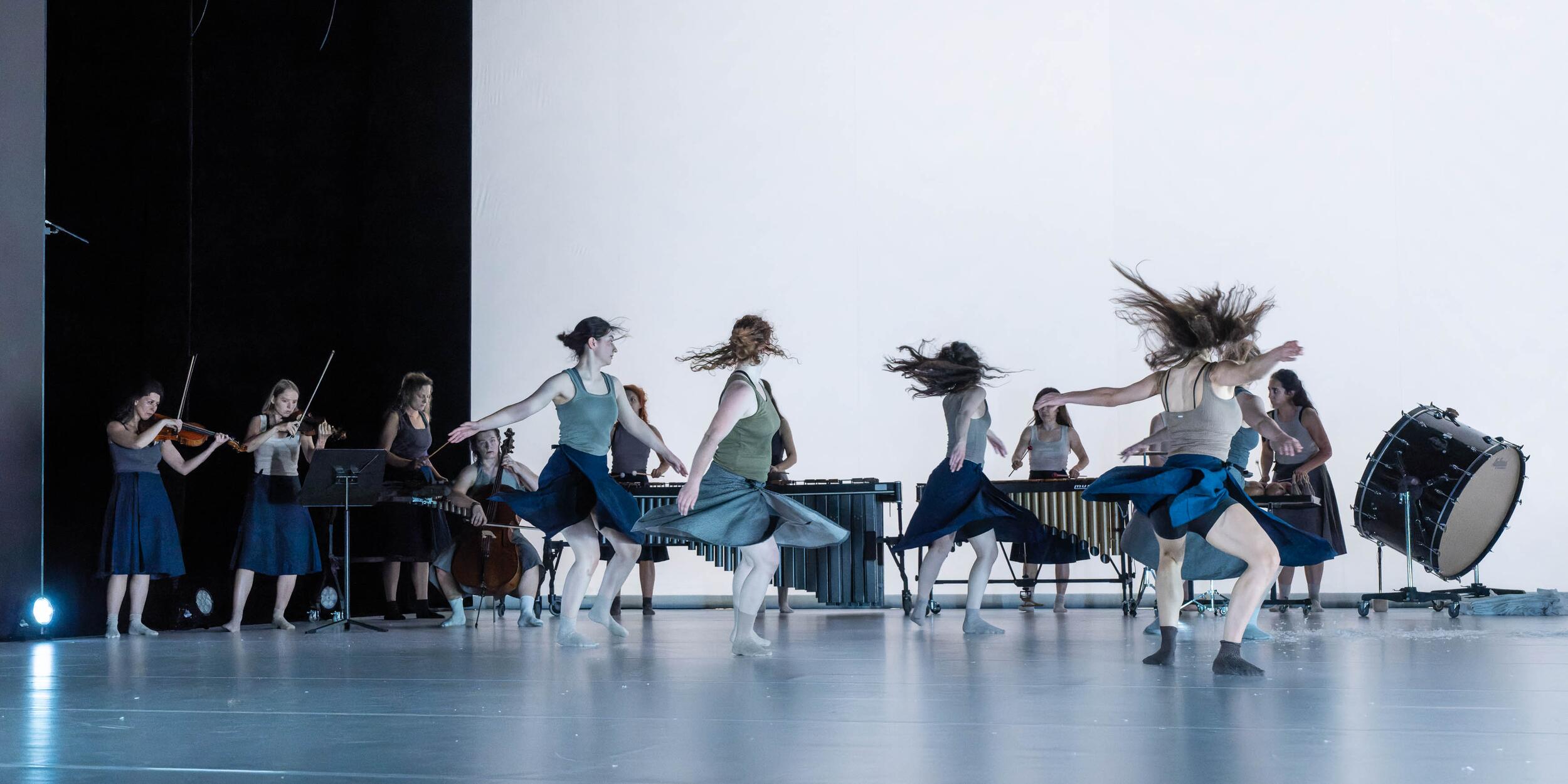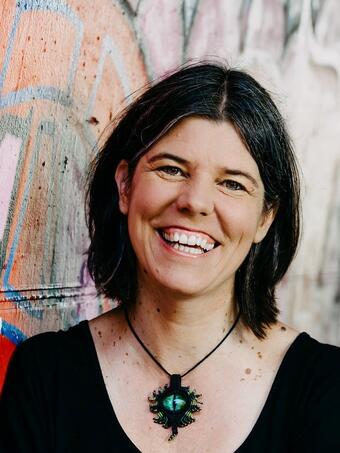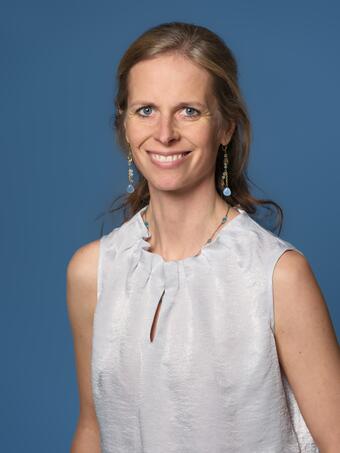International Summer Course at the Orff Institute

Save the date: The International Summer Course is in preparation and will take place from 5-11 July 2026 in Salzburg! We look forward to welcoming all interested parties to Salzburg!
INTERNATIONAL SUMMER COURSE 2026
Elemental Music and Dance Pedagogy - Orff Schulwerk
Language
English
5–11 July 2026
Orff Institute
Registration:
https://apex.moz.ac.at/apex/f?p=116:9999
Registration
-
- Registration starts at the 15th of January and will be exclusively online. Registration should be made as soon as possible since there is only a limited number of places available.
- Application:
https://apex.moz.ac.at/apex/f?p=116:9999 - The fee of EUR 550,– has to be paid by credit card during online registration.
Registration
-
Registration starts at the 15th of January and will be exclusively online. Registration should be made as soon as possible since there is only a limited number of places available.
-
gistration:
https://apex.moz.ac.at/apex/f?p=116:9999
Opening
Workshop
Morning sessions: 9.00-10.30 a.m. / 11.00-12.30 p.m.
Glage Ari
The Power of Rhythm and Voice
The development of rhythmic ability is closely linked to our body’s innate musical awareness. The connection between rhythmic language and movement, in particular, creates a foundation for understanding universal rhythmic concepts such as pulse, off-beats, and cyclical patterns. In this workshop, we will explore different approaches for using the rhythmic–melodic voice within body-percussion ensembles and percussion circles. By adding vocal chants to basic rhythmic structures, participants deepen their experience and engage in the simultaneous perception of multiple musical layers. We will also discuss and try out adaptations for a variety of target groups.
Humphreys Laura
Singing with children – Voice, Games, Songs
This course explores how to fully develop the potential of children’s voices. Together, we will dive into fun musical games, vocal warm-ups, and a range of pedagogical techniques that support relationship-building and personal growth. We get to know songs for movement, those that can be used rituals that help start and end sessions, pieces tied to the seasons and their celebrations, songs in various languages and songs for being wonderfully silly together - so everyone can walk away with something new for their personal repertoire. The course also places strong emphasis on vocal health for children: singing in the high register (and how to do that even if it doesn’t feel natural at first), healthy breathing, and posture. Everything in this course has been tested over many years, shaped by day-to-day experience teaching children, and refined into what will hopefully be a genuinely useful toolkit for your own practice.
Tischitz Barbara
Working with material: swoosh – pling – click!
Do you hear the fire whispering and crackling? Do you see the waves swaying and surging? We will make nets dance, mice rattle and balls whiz. Together, we are going to explore: WHICH materials work particularly well with WHICH target groups, HOW to use them and WHY. How can materials trigger and spark our imagination? Come, see, feel, smell, taste and hear!
Wang Chris
Dance and Choreography
This course focuses on approaching dance practice from the perspective of inclusion and diversity, touching on topics of somatic movement awareness, inclusive teaching methods, and an accessible introduction to movement composition and choreography. It anchors practices from community dance and contemporary dance into the philosophy of Orff Schulwerk, offering a holistic and accessible approach towards discovering, facilitating, and organizing movement that draws our capacities and natural tendencies towards creative imagination and embodied fiction.
Afternoon Sessions: 2.30 pm–4 pm / 4.30 pm–6 pm
Brooke Sarah
The Art of Hands and Feet
How can we build a music-making community in the classroom? Starting with the simple actions of hands and feet, we explore playful structures for games and compositions. Exploring these structures further using the voice, body, and instruments allows us to immerse ourselves in play. How do we move from experimentation into composition without losing that sense of playfulness? These sessions are designed for anyone working with children of all ages in schools or community settings. Feel free to bring your own instrument if you would like.
Fegerl Christine
Move first – then create
Art begins in the body. Before we can create, we need to be fully connected with all our senses. This workshop invites you to step out of your daily routines and reconnect with your body as a pathway into an open, creative space. Each session begins with a variety of simple movements accompanied by music before we pick up pencils, brushes, and colors to experiment with different artistic techniques. We will discover how creativity flows more freely when we are in good contact with ourselves and our inner awareness.
Kaikkonen Markku
Everyone Participates – Everyone Learns
We move, play, sing, and explore - together, no matter anyone is background or skill level. Through a varied, process-oriented approach, small elements weave into a shared whole. The goal is to explore and discover methods and forms of teaching that enable everyone to participate and everyone to learn. The exercises presented are easy to adapt for different ages and for learners from diverse backgrounds. Everyone can - everyone learns.
Marlis Sonja
"Soft bodies, magic minds." Concepts for connection and playfulness in mixed-abled dance.
Through gentle improvisation and playful movement tasks, we create a space where bodies - each in their own uniqueness - can unfold, connect, and be seen.
Together, we explore what we need from one another to feel safe, curious, and brave enough to share our dance, our artistry, and our stories. How can care, playfulness, and difference become choreographic tools? We move, write, draw, share, and listen -shifting softly between solo exploration and collective encounters. Improvisation becomes our language, connection our method, and joy our shared ground. This workshop welcomes dancers, non-dancers, dreamers, movers, and storytellers alike
Valtiner-Pühringer Doris
Children’s concerts for all the senses
How do you create concert formats for the very youngest (ages 0-3) and their (grand)parents? Where do you find inspiration? And how do you shape a well-rounded concert experience for young children? In this workshop, we will dig into key topics such as moderation, dramaturgy, transitions, and the visual and interactive staging of each musical element - all designed with and for an inclusive audience. Please bring your instrument so we can explore the ideas hands-on and try them out together!
Information
How to get there
By bus: line 3 from the railway station or city entre in the direction of Salzburg-Süd, get off at the bus stop “Polizeidirektion“ (a 20 min ride).
By car: from the motorway, exit Salzburg-Süd (Anif), Alpenstraße, turn left onto Frohnburgweg (traffic light near Polizeidirektion).
Accommodation
The Orff Institute cannot make any housring arrangements.
Within a 5 min walking distance:
Motel One Salzburg Süd Alpenstraße 92, 5020 Salzburg
Tel: +43 662 835020
E-Mail: salzburg-sued@motel-one.com
www.motel-one.com
For all other accommodation
Tourismus Salzburg GmbH Auerspergstraße 6, 5020 Salzburg
Tel: +43 662 88987 0
E-Mail: tourist@salzburg.info
www.salzburginfo.at

